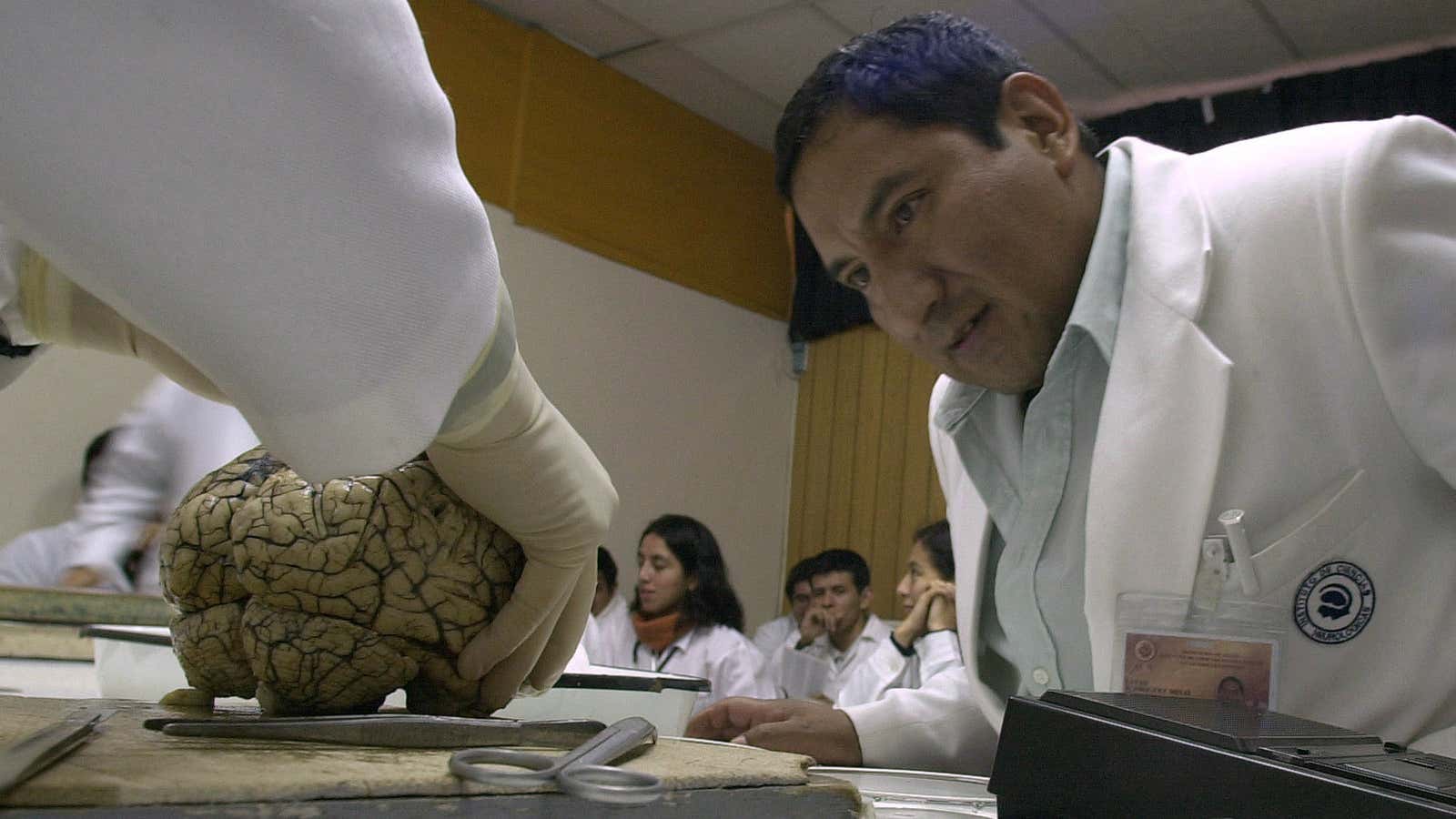When making decisions about education, management, or other policies, it’s wise to draw on facts about how the human brain works. And chances are that many of the things you think you know about neuroscience aren’t facts at all, just “neuromyths”: widely held, stubbornly persistent misconceptions.
These myths are typically over-simplified interpretations of research findings, and they are startlingly pervasive. Take the “Mozart effect”—the claim, originating with a small study in 1993, that listening to classical music boosts cognitive performance. Rafts of studies since have found that those original conclusions were overstated, yet YouTube and Amazon remain full of classical compilations marketed for babies.
To understand the reach of brain-related myths in the US, a group of researchers surveyed nearly 3,900 US adults on TestMyBrain.org, a citizen science website that gathers data via online quizzes. They identified a cluster of seven statements highly correlated to one another—if respondents got one wrong, they likely got them all wrong.
Members of the general public, on average, knew the correct answer to only 32% of these seven questions. Educators got only 44% accurate, on average, and even people with high levels of exposure to science got only slightly more than half right.
Neuroscience is hardly the only subject these days prone to disinformation. But when well-meaning educators or policy makers translate misconceptions into programs, the results can be ineffective at best and harmful at worst.
“With neuroscience in particular, there are so many implications for decisions we make about education and our health,” said Laura Germine, a co-author of the study and director of the Laboratory for Brain and Cognitive Health Technology at McLean Hospital in Massachusetts. “Being able to understand basic things about how the mind works is important for both good decisions and for inoculating yourself against the snake oil that’s out there.”
Can you distinguish fact from myth? Take our quiz and find out.
